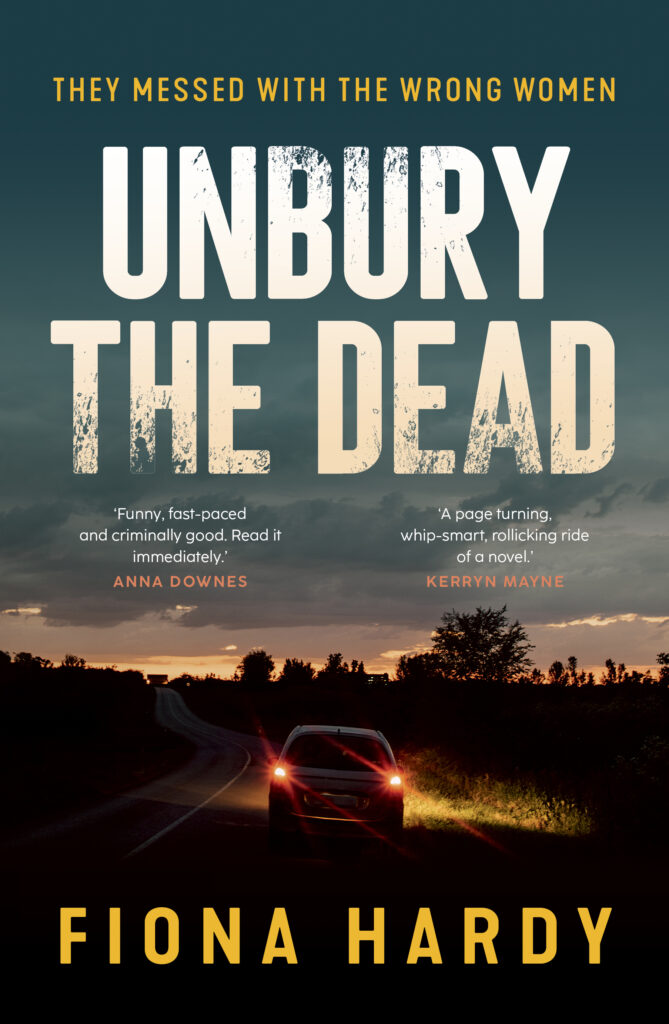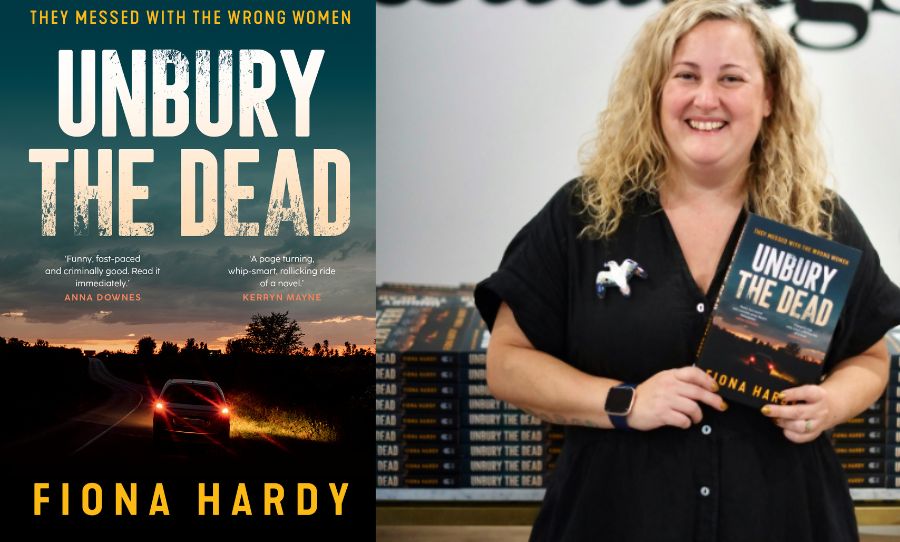“Some reviewers are thick-skinned, but alas mine is so thin that it’s coveted by whoever supplies public bathrooms with their toilet paper”
For years, Fiona Hardy has been deep in the world of crime fiction, dissecting plots and characters at Melbourne’s Readings Bookstore.
Now, with her debut thriller Unbury the Dead (Affirm Press) hitting shelves, she’s putting all that know-how to work. In this piece, Hardy shares how her time as a bookseller and crime fiction reviewer shaped the way she writes—whether it’s creating tension, building characters, or knowing how to keep readers hooked.
Her journey has taught her one key thing: no book is for everyone, but every book has its reader. Here, she talks about how that’s shaped her writing—and why it’s so important to find your audience, even if it means playing by your own rules.
View this post on Instagram
As any reviewer or author in Australia knows, the broader literary community here is an incredibly small world.
It’s not easy to be honest in a place where you hand out two stars to a book and it turns out that the author, on the balance of probabilities, is in a writers group with someone from your writers group. Some reviewers are thick-skinned, but alas mine is so thin that it’s coveted by whoever supplies public bathrooms with their toilet paper.
I’ve been a crime fiction reviewer for around fifteen years now, mostly for industry publications, occasionally for magazines. Mostly, I’ve written for the newsletter made by the bookstore I work at, which has made me review with a broader audience in mind. The majority of these reviews are short, and I’m trying to describe the plot and the audience without the room for a longform critical analysis.
Which is fine, because my other job besides reviewing and writing – and, alas, the most financially stable one – is bookselling, and the single most important thing I’ve learned from bookselling is that there is no one universally adored book, in any genre.
People love to tell booksellers what they hate just as much as they enjoy sharing what they love, and every book that’s crossed our shelves has had people both like and dislike it. I’ve read books I can’t stand, and had a customer come in the next day to ask for something just like it, because it’s the best thing they’ve ever read.
I’ll pick up a book I’ve loved for their characters and tight plotting, about to launch into an adoring speech about it, only to have customers scoff before I can start and tell me no, they hated it and gave up on chapter three. So I have to spirit that book away like I never loved it in the first place, and find something they’d prefer instead. Perhaps that novel I didn’t like from before?
It’s my job as a reviewer to try and find the right reader for each book — because things aren’t written for everyone, but everyone can find something written for them. I’ll try, if I can, to subtly add the tone of the book to the review itself – crack a few puns for a light-hearted book, throw in some tonal darkness for it’s a heavier one.
I’ve learned not to get too personal – once, as a dig during the Gone Girl era’s publishing craze of putting the word into every title, I made a joke describing a main character as a “forty-year-old girl”. The book was great, but the author contacted my editor, displeased, and ended up publishing a piece in defence of the word. (I’m still relieved that era has passed, but raise my eyebrows as to why “boy” titles never took off.)
Reviewing has made me a better writer – because it made me a better reader first. Instead of picking out only what I personally like, I was given the breadth of crime fiction, in all its delicious subcategories: region-based (snowy Scandi noir, introspective Japanese classics, swampy American South procedurals); plot-based (cosy crime, broody psychological thrillers, books with more twists than the current season of US politics); character-based (divorced detective with a drinking problem, straight-laced person on the run after being accused of a crime they didn’t commit, pre-teen watching a crime unfold in their small town without full understanding of what happens) – all that, and more.

There is so much to learn from each and every book you read. How to bring Australia’s burning sun to life for readers on a wintery night. How to create the kind of unbearable tension that means readers stay up until sunrise to finish it. How to make readers fall in love with your characters and cry then shout online when bad things happen to them. How to write a sentence that people will go back and read again, right away or next month or in ten years.
No book is everything to everybody – go and read the Goodreads reviews of your most beloved novel and watch somebody dissect all of your favourite parts and list them as the worst things they’ve ever read in their lives. (Or don’t, if you need to keep your blood pressure down.)
As a writer, reading from an outsider’s perspective can only improve your work. And if I’ve read your book and didn’t like it, no, I’ll never tell you. Because you worked hard on it, and somebody out there held it in their arms and told me they loved it. All reviewers can hope to do is get the right book to the right people. And if not, gentle readers, we look forward to your angry emails.
If you love razor-sharp crime fiction with wit and heart, Fiona Hardy’s Unbury the Dead is your next must-read. Grab your copy now from Affirm Press or your favourite bookstore—and see if you can unravel the mystery before Teddy and Alice do.



